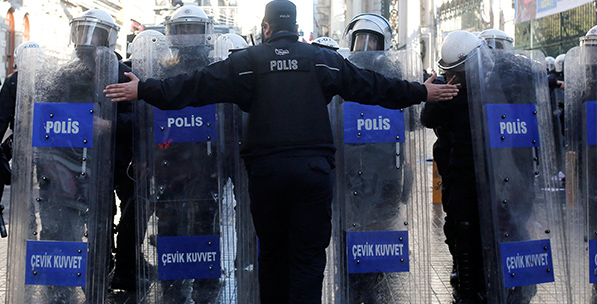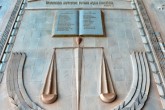For days, we have been discussing the political crisis sparked by the normalization pains of the Gulen Movement.
The Movement’s failure to keep in pace with the transformation of Turkey is at the core of the crisis. As many other religious congregations, the Gulen Movement as well has set out on the road to raise devout generations. Since day one, however, the Movement has adopted a line of development which distinguishes itself in many areas from the other religious communities.
Just like they have abstained from having contacts with other religious congregations, the Movement has not wished to share the same fate with them. It has preferred to raise more cadres, positioned them in strategic offices within bureaucracy and developed a religious interpretation that views to remain powerful more important than anything else.
The Islamic jurisprudence (fiqh) of the Movement has been formed with an understanding to see itself as the only choice for the future of the country (and perhaps of the world).
This belief of being the only savior has culminated in adoption of an understanding that, if necessary, everything can be put on the back burner (or burned) for the sake of their own existence. The Movement seeing itself more important than anything else has evolved to the belief and modus operandi that everything else can be sacrificed for its own salvation. Morals, belief and politics have been interpreted and adopted according to an understanding prioritizing the affairs of the Movement. In this frame, disciples are given permission to act in collision with Islamic teachings and against the reflexes of the average religious segment of the society.
With this attitude, the Gulen Movement which, in each period, pays special attention to be close to the centers of power, has been perceived as a threat by the State except during the last decade under the Justice and Development Party (AK Party) government.
For many reasons such as struggles against the tutelage, redrafting the political center and resolving the social exclusion issue of pious segments, the Gulen Movement has found a proper political ground to develop and grow during the AK Party period. In connection with its principle of action to prioritize the Movement, it has exhibited an attitude that has recognized no limitations – be them moral, legal, or religious – in order to weaken other religious entities if it sees them as alternatives to itself, and has never acknowledged other segments’ rights to take part in official-civilian units where the Movement has held power, and occupied all positions to the fullest extent but otherwise open to all segments of the society. The Movement have not at all shied away from exploiting the instruments they have acquired and gained during the AK Party period in order to attract the influential segments of the society. Within this scope, the Movement have become as strong as they could get by turning into a critical guard post to meet the security and safety needs of business tycoons, and carrier and power expectations of young people.
Ultimately, as we have arrived at the day, we face a situation where the Kemalist tutelage has been regressed but replaced by a bigger center of tutelage. The Gulen Movement have taken the stage in the direction of its concept of prioritizing the Movement and being ready to sacrifice everything for the sake of the Movement’s own affairs. Therefore, they have become a new power of tutelage in replacement of the old tutelage that had been regressed already. After the War of Independence, the Kemalist cadre eliminated its nemeses and shaped Turkey all by itself. Similarly, the Gulen Movement has taken action to become the “neo-Kemalist” constituent cadre of the new Turkey by weakening its possible alternative rivals following the regression of the tutelage.
CONFRONTING THE CRISIS
The February 7, 2013 and the December 17, 2013 plots (against the government) have shown to the p



